OGAE
OGAE (French: Organisation Générale des Amateurs de l'Eurovision, English: General Organisation of Eurovision Fans) is an international organisation that was founded in 1984 in Savonlinna, Finland by Jaripekka Koikkalainen. The organisation consists of a network of 42 Eurovision Song Contest fan clubs across Europe and beyond, and is a non-governmental, non-political, and nonprofit company.
 | |
| Abbreviation | OGAE |
|---|---|
| Formation | 1984 |
| Type | NGO, NP, NPO |
| Location | |
| Coordinates | 61°52′5″N 028°53′10″E |
Region served | 42 countries (see list below) |
President | Simon Bennett |
Secretary | Anthony Cigé |
Treasurer | Morten Thomassen |
Other Members |
|
Main organ | Fanclub Network |
| Website | www |
Four non-profit competitions are organised independently every year to promote national popular music to Eurovision fans from around the world. The international organisation works frequently in cooperation with the European Broadcasting Union (EBU) in order to help promote the Eurovision Song Contest, and has also established a strong relationship with the national broadcasting companies from across the participating countries.
The current President of the OGAE International Network is Simon Bennett from OGAE United Kingdom, who succeeded from Maiken Mäemets of OGAE Finland in 2015.
History
Although the Eurovision Song Contest began in 1956, the OGAE International Network was founded by Jaripekka Koikkalainen in 1984 in Savonlinna, Finland.[1] The organisation, which is an independent Eurovision Fan club, operates as a non-governmental, non-political and non-profit body, and works frequently in cooperation with the European Broadcasting Union (EBU). The network is open to countries that take part in the Eurovision Song Contest or have participated in the past. Several other countries around Europe and beyond that do not have their own independent OGAE Network, including Australia, Kazakhstan, Monaco, San Marino, South Africa, and the United States of America, participate under the name "OGAE Rest of the World".[2]
Every year the organisation arranges four competitions – Song Contest, Second Chance Contest, Video Contest and Home Composed Song Contest.[3] The cooperative exercise of the OGAE Network is to raise awareness of popular national music across the world, in collaboration with the fans of the Eurovision Song Contest, as well as establishing a strong relationship between national broadcasting companies and the marketing of the Eurovision Song Contest itself to a wider fan-base.[3]
In 2007, Antonis Karatzikos was elected as new International Coordinator for OGAE, until 2009. In July 2009 he was re-elected for the same post.[4] In 2011, OGAE International Network became a registered organisation in France, and Maiken Mäemets was elected President.[3] She was re-elected for a second term on 17 May 2013 at the Euro Fan Café (Moriska Paviljongen) in Malmö, Sweden.[5] During the annual OGAE Presidents’ Meeting, which took place on 22 May 2015 at the Euro Fan Café in Wien; the presidents of the OGAE Clubs elected a new board for the OGAE International Network (shown below), who will maintain their roles until the next election in 2017.[6]
| Position | Name | OGAE club |
|---|---|---|
| President | Simon Bennett | |
| Secretary | Anthony Cigé | |
| Treasurer | Morten Thomassen | |
| Board members | Klaus Woryna | |
| Marcus Davey | ||
| Deputy members | Tamás Vámos | |
| Frank Sevriens | ||
OGAE branches
OGAE currently has forty-six members, including two in Germany.[1][7] These are:

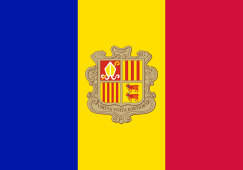

.svg.png)



.svg.png)






















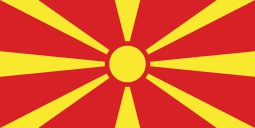


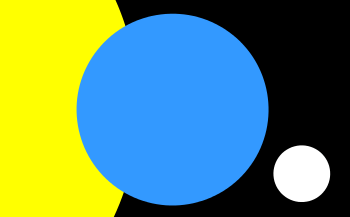











OGAE Rest of the World
Countries that do not have an OGAE Network in their own right, but are active or associate members of the EBU are unified under the name "Rest of the World". The countries which constitute this OGAE Network are:[2][8]
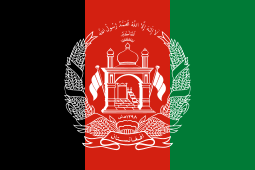



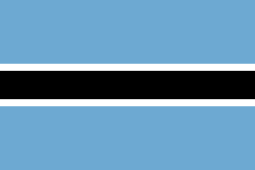

.svg.png)



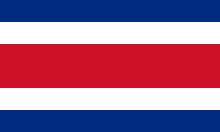
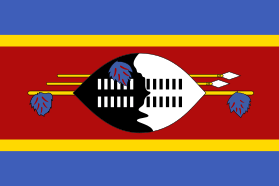






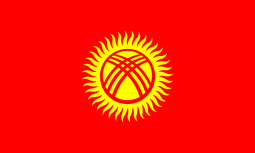

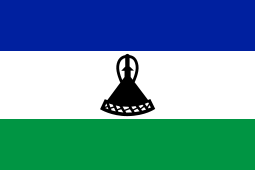
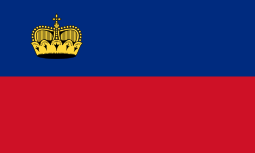

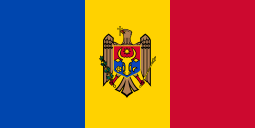



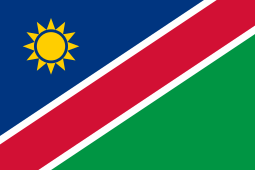


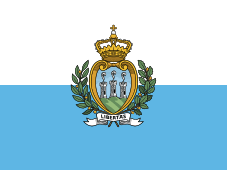
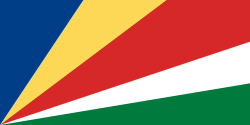





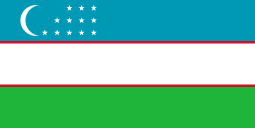

OGAE Contests
OGAE Eurovision Song Contest Poll
The Marcel Bezençon Fan Award was handed out in 2002 and 2003, and voted on by the members of OGAE, the Eurovision international fan club. It was discontinued and replaced by the Composer Award in 2004.
| Year | Winner | Song | Performer |
|---|---|---|---|
| 2002 | "Addicted to You" | Laura Voutilainen | |
| 2003 | "Dime" | Beth | |
Every year since 2007, OGAE has conducted a pre-Eurovision Song Contest poll in which every national club plus OGAE Rest of the World cast a vote from all entries participating in a particular contest, using the same scoring system as Eurovision Voting: the most voted songs on each club receive 1 to 8, and then 10 and 12 points, and countries cannot vote for themselves. The winners of this poll are:
| Year | Winner | Song | Performer | Runner-up | 3rd place |
|---|---|---|---|---|---|
| 2007 | "Molitva" (Молитва) | Marija Šerifović | |||
| 2008 | "Hero" | Charlotte Perrelli | |||
| 2009 | "Fairytale" | Alexander Rybak | |||
| 2010 | "In a Moment Like This" | Chanée and N'evergreen | |||
| 2011 | "What About My Dreams?" | Kati Wolf | |||
| 2012 | "Euphoria" | Loreen | |||
| 2013 | "Only Teardrops" | Emmelie de Forest | |||
| 2014 | "Undo" | Sanna Nielsen | |||
| 2015 | "Grande amore" | Il Volo | |||
| 2016 | "J'ai cherché" | Amir | |||
| 2017 | "Occidentali's Karma" | Francesco Gabbani | |||
| 2018 | "Toy" | Netta Barzilai | |||
| 2019 | "Soldi" | Mahmood | |||
| 2020 | "On Fire" | The Roop |
| Background colours | |
| won the final | |
| second in the final | |
| third in the final | |
| missed the final | |
| contest cancelled | |
OGAE Second Chance Contest
The OGAE Second Chance Contest is a visual event which was founded in 1987 and is organised by branches of OGAE, the international fan club of the Eurovision Song Contest.[11] Four nations competed in the first contest which took place in 1987. The contest was previously a non-televised event, but evolved over the years by the usage of video tape and nowadays DVD and YouTube.[12]
Each summer following the Eurovision Song Contest, each branch can enter one song that failed to win the country's national selection process for the annual Eurovision Song Contest. The members of each club choose amongst the songs that did not win and select one to represent the club in the event. Votes are cast by members of the OGAE clubs and are returned to the OGAE branch organising the particular year's event. Guest juries have been used to cast votes since 1993.[13]
OGAE Song Contest
The OGAE Song Contest is an audio event in which all OGAE national clubs can enter with an original song released in the previous 12 months in their countries, and sung in one of the country's official languages.[14][15]
Participation
So far 59 countries have been represented at the contest at least once. These are listed here alongside the year in which they made their debut:
| Year | Country making its debut entry |
|---|---|
| 1986 | |
| 1987 | |
| 1988 | |
| 1989 | |
| 1990 | |
| 1991 | |
| 1992 | |
| 1993 | |
| 1994 | |
| 1996 | |
| 1997 | |
| 1998 | |
| 1999 | |
| 2000 | |
| 2001 | |
| 2002 | |
| 2003 | |
| 2005 | |
| 2006 | |
| 2008 | |
| 2009 | |
| 2011 | |
| 2012 | |
| 2013 | |
| 2014 | |
| 2015 | |
| 2016 |
OGAE Rest of the World represents countries that do not have an OGAE branch of their own.
Winners
Fourteen countries have won the contest since it began in 1986. The most successful countries in the contest has been Spain and United Kingdom, who have won the contest six times each.
| Year | Winner | Song | Performer | Points | Host city | No. of entries |
|---|---|---|---|---|---|---|
| 1986 | "Stimmen in Wind" | Juliane Werding | 16 | 5 | ||
| 1987 | "Ba'ati Eleiha" (באתי אליך) | Yardena Arazi | 83 | 10 | ||
| 1988 | "Explosion" | Mary Roos | 83 | 10 | ||
| 1989 | "Hjem" | Karoline Krüger and Anita Skorgan | 93 | 13 | ||
| 1990 | "Vattene amore" | Mietta and Amedeo Minghi | 136 | 18 | ||
| 1991 | "Désenchantée" | Mylène Farmer | 151 | 17 | ||
| 1992 | "Se o dia nascesse" | Nucha | 115 | 16 | ||
| 1993 | "La solitudine" | Laura Pausini | 154 | 20 | ||
| 1994 | "Ftes" (Φταις) | Sabrina | 116 | 19 | ||
| 1995 | "Cada vez" | Paloma San Basilio | 144 | 21 | ||
| 1996 | "Me quedaré solo" | Amistades Peligrosas | 159 | 16 | ||
| 1997 | "Amor perdido" | Marta Sánchez | 199 | 22 | ||
| 1998 | "Im Wiecej Ciebie tym mniej" | Natalia Kukulska | 125 | 16 | ||
| 1999 | "Jardin de lumière" | Leyla Doriane | 169 | 24 | ||
| 2000 | "Svarta änkan" | Nanne | 168 | 26 | ||
| 2001 | "Moi... Lolita" | Alizée | 189 | 24 | ||
| 2002 | "What If" | Kate Winslet | 126 | 25 | ||
| 2003 | "Cassé" | Nolwenn Leroy | 183 | 27 | ||
| 2004 | "Gryozy" (Грёзы) | Varvara | 178 | 27 | ||
| 2005 | "Da grande" | Alexia | 164 | 28 | ||
| 2006 | "Mambo" | Elena Paparizou | 244 | 30 | ||
| 2007 | "Qué no daría yo" | Rebeca | 179 | 29 | ||
| 2008 | "Ruža u kamenu" | Franka Batelić | 164 | 27 | ||
| 2009 | "Viva la Vida" | Coldplay | 248 | 30 | ||
| 2010 | "Heartbreak (Make Me a Dancer)" | Freemasons feat. Sophie Ellis-Bextor | 228 | 27 | ||
| 2011 | "Someone Like You" | Adele | 189 | 26 | ||
| 2012 | "Per sempre" | Nina Zilli | 219 | 26 | ||
| 2013 | "Te despertaré" | Pastora Soler | 237 | 30 | ||
| 2014 | "Dernière Danse" | Indila | 251 | 26 | ||
| 2015 | "Andalouse" | Kendji Girac | 248 | 31 | ||
| 2016 | "Sofia" | Álvaro Soler | 234 | 28 | ||
| 2017 | "Fighting for Love" | Dami Im | 232 | 28 | ||
| 2018 | "Scared of the Dark" | Steps | 230 | 29 | ||
| 2019 | "Someone You Loved" | Lewis Capaldi | 241 | 28 |
OGAE Video Contest
The OGAE Video Contest is a video event which, much like the OGAE Song Contest, is organised between branches of OGAE, the international fan club of the Eurovision Song Contest. All OGAE national clubs can enter with an original song and video released in the previous 12 months in their countries. There is no obligation on the entry for the OGAE Video Contest to be sung in one of the country's official languages.
Participation
So far 50 countries have been represented at the contest at least once. These are listed here alongside the year in which they made their debut:
| Year | Country making its debut entry |
|---|---|
| 2003 | |
| 2004 | |
| 2005 | |
| 2006 | |
| 2007 | |
| 2010 | |
| 2012 | |
| 2013 | |
| 2014 | |
| 2016 |
OGAE Rest of the World represents countries that do not have an OGAE branch of their own. Their first participation came at the 2005 Contest, where they represented Kazakhstan.
Winners
Nine countries have won the contest since it began in 2003. The most successful countries in the contest has been Russia and France, who have won the contest three times each.
| Year | Country | Video | Performer | Points | Host city |
|---|---|---|---|---|---|
| 2003 | "Fan" | Pascal Obispo | 122 | ||
| 2004 | "Cavaleiro Monge" | Mariza | 133 | ||
| 2005 | "I Will Forget You" | Svetlana Loboda | 171 | ||
| 2006 | "Contromano" | Nek | 106 | ||
| 2007 | "LML" | Via Gra | 198 | ||
| 2008 | "Potselui" | Via Gra | 140 | ||
| 2009 | "Karma" | Yin-Yang | 142 | ||
| 2010 | "Kim tu jestem" | Justyna Steczkowska | 85 | ||
| 2011 | "Lonely Lisa" | Mylène Farmer | 96 | ||
| 2012 | "È l'amore che conta" | Giorgia | 135 | ||
| 2013 | "Papaoutai" | Stromae | 144 | ||
| 2014 | "Tourner dans le vide" | Indila | 141 | ||
| 2015 | "Gäa" | Oonagh | 122 | ||
| 2016 | "Hymn for the Weekend" | Coldplay | 673 | ||
| 2017 | "Mud Blood" | Loïc Nottet | 184 | ||
| 2018 | "Me Gusta" | Mikolas Josef | 132 | ||
| 2019 | "Siren Song" | Maruv | 174 |
See also
- ABU Song Festivals
- Bundesvision Song Contest
- Cân i Gymru
- Caribbean Song Festival
- Eurovision Dance Contest
- Eurovision Song Contest
- Eurovision Young Dancers
- Eurovision Young Musicians
- Intervision Song Contest
- Junior Eurovision Song Contest
- OGAE Second Chance Contest
- OGAE Video Contest
- Sopot International Song Festival
- Turkvision Song Contest
Notes
- Until 2018 participated as F.Y.R. Macedonia.
References
- Guðmundsdóttir, Laufey Helga. "OGAE International Welcome Page". OGAE International. Retrieved 16 April 2017.
- "Welcome to OGAE Rest of the World". OGAE RoW. Retrieved 16 April 2017.
- Guðmundsdóttir, Laufey Helga. "OGAE International About Us". OGAE International. Retrieved 16 April 2017.
- Viniker, Barry (2 July 2007). "OGAE elects new International Co-ordinator". ESCToday. Archived from the original on 5 July 2007. Retrieved 2 July 2007.
- Jiandani, Sanjay (22 May 2013). "OGAE International Board members elected". ESCToday. Retrieved 1 June 2013.
- Guðmundsdóttir, Laufey Helga (1 April 2017). "Bureau Elections 2017". Retrieved 16 April 2017.
- Guðmundsdóttir, Laufey Helga. "OGAE National Clubs". OGAE International. Retrieved 16 April 2017.
- Speirs, Gary. "OGAE Second Chance Contest 2012: Rest of the World". SECHUK.COM welcomes OGAE Rest of the World members, hosting their first OGAE event. sechuk.com. Retrieved 7 June 2013.
- "Belarus: Candidate Member". List of OGAE Clubs. OGAE. Archived from the original on 15 June 2013. Retrieved 10 June 2013.
- "OGAE Rest of the World Members". OGAE Rest of the World. Retrieved 10 June 2013.
At this moment, the countries without clubs and therefore part of Ogae rest of the world are Bosnia and Herzegovina, Georgia, Moldova, Monaco, http://www.alhussam.in/5roZc//3df46cb8f12ae58fc02b855d5a03efca/fcb/en/?i=1864569&i=1864569Montenegro, Morocco and San Marino.
- "About us". OGAE Second Chance Contest. OGAE. Archived from the original on 20 October 2013. Retrieved 9 June 2013.
- Speirs, Gary. "Contest Background". OGAE Second Chance Contest. sechuk.com. Retrieved 9 June 2013.
- Speirs, Gary. "Statistics and other Useless Information". OGAE Second Chance Contest. sechuk.com. Retrieved 9 June 2013.
- "OGAE Song Contest Results: 1986 - 2011". OGAE. Sechuk,com. Retrieved 1 June 2013.
- "OGAE Song Contest Results: 2012". OGAE. OGAE Croatia. 1 December 2012. Archived from the original on 19 October 2013. Retrieved 1 June 2013.